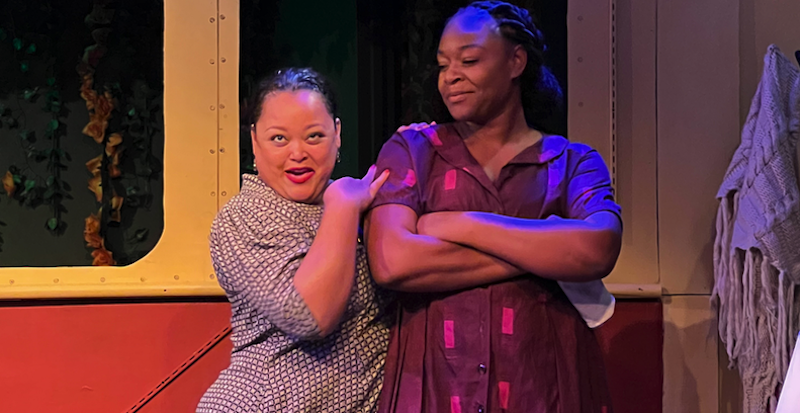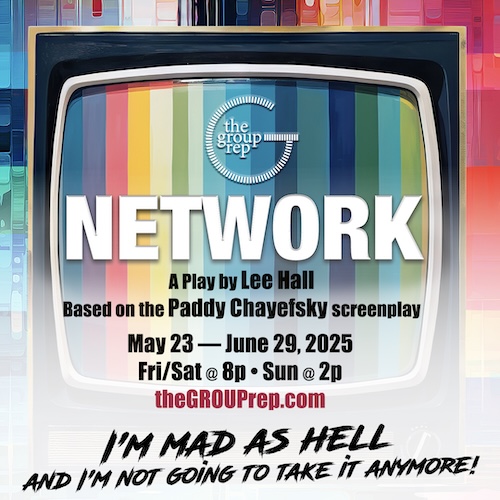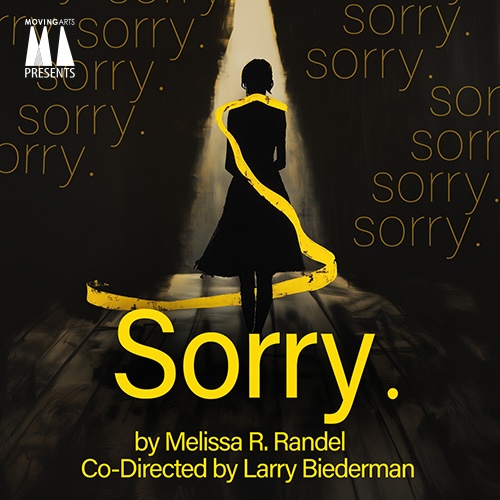
Dominique Howard and Jazmine Nichelle (photo by Daniel J. Parker)
Reviewed by Steven Leigh Morris
Loft Ensemble
Through May 5
RECOMMENDED
There’s a rawness in Jazmine Nichelle’s staging of Michelle Tyrene Johnson’s family/ancestry play, The Green Book Wine Club Train Trip. Not raw as in abrasive. Quite the opposite: This is a mostly gentle and at times sentimental rendition of a young woman literally almost stumbling into her past. The rawness lies in the lack of polish, which feels right for this story.
An exposition-heavy opening introduces us to a quintet of African-American women on a train trip in 2018. They belong to a book club that features the copious consumption of wine. That’s okay, but the stage picture of five people sitting in train seats behind a window is far more cinematic than theatrical. Things soon perk up considerably when the central character, Marie (Brieyonna Monét), wanders into a local burg during a layover to find herself in a Jim Crow town in 1946, wondering how on earth she’s going to get back to the train, and back to her era.
Furthermore, she’s guided by the first person she encounters (Dominique Howard) into a brothel that serves (and services) Black men wandering through, all with the acquiescence of the offstage local sheriff, presumably White, who supports a White brothel across town. “Separate but equal,” that type of thing.
It doesn’t take violence to keep such a story potent, though there is a smidgen of that with one abusive offstage customer. The play hangs on the Twilight Zone mystery revealing the cultural ethos of an American backwater in 1946, and how that ethos contrasts with that of the 21st century. The author’s insightful view is that the differences are in technology, less so in rudimentary human behavior. The feminism in a 1946 brothel, as depicted by Johnson, is really not so different from that of today. It simply wasn’t a social movement then. And though the gulfs of incomprehension between the people of 1946 and those of 2018 (from phone booths versus cellphones to racial segregation as policy) are absorbing, this production’s primary virtue comes from the actors, each of whom (with the exception of Monét, who plays Marie in both time zones) presents one face in 1946, and a wildly different one on a 2018 train-ride.
In the performance I saw, Elena Nicholson brought endearing pathos — and dignity — to her 1946 sexual assault victim, and was transformed when back on the train in 2018. (Nicholson alternates with Tasia Williams.)
There are also great dual performances by director Jazmine Nichelle, the spirited Dominique Howard, and Princess Ja’net.
The functional, authentic set by Max Reed III and Matthew Scheel gets nicely complemented by Jen DeRosa’s era-transgressing costumes (There must have been some lightning-fast costume changes). Sarah Nilsen’s lighting accentuates the play’s metaphysics, while Bree Pavey’s sound design literally underscores the respective eras, with Billie Holiday’s “God Bless the Child” offering a dose of irony to a Jim Crow town in 1946.
Loft ensemble, 11031 Camarillo St., N. Hollywood. Fri.-Sat., 8 pm, Sun., 7 pm; thru May 5. www.loftensemble.org Running time: Two hours with intermission.














